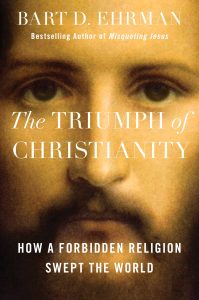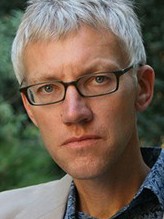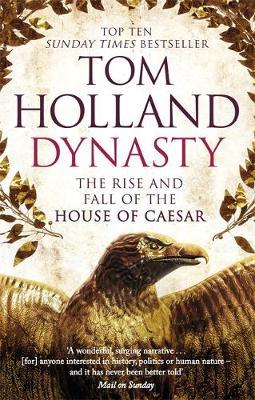I have enjoyed and learned from two historical tomes by the popular historian Tom Holland: In the Shadow of the Sword: The Birth of Islam and the Rise of the Global Arab Empire and Millennium: The End of the World and the Forging of Christendom. Holland knows how to garnish historical detail and interpretation with narrative colour.

Some days ago Holland reviewed Bart Ehrman’s new book, The Triumph of Christianity: How a Forbidden Religion Swept the World in The Spectator: How Christianity saw off its rivals and became the universal church. He had the highest praise for both Ehrman as a scholar and his newest publication:
This is the work of a great scholar, sifting sources, placing them in their historical context, interrogating the assumptions that may condition how we interpret them. There are even some graphs. Indeed, so determined is Ehrman not to be mistaken for a theologian that he makes a point of refusing to speculate as to whether the rise of Christianity was a Good or Bad Thing. . . .
Ehrman is a great scholar, and this — as one would expect — is a book full of learning and nuance.
Larry Hurtado blogged a notice of Tom Holland’s review of Ehrman (while parenthetically noting Holland’s positive words about his (Hurtado’s) own book, Destroyer of the Gods.)
It is nice to see scholars getting along so well, especially from different areas of speciality. We can for a while at least put behind us those times biblical scholars complain that outside critics are not qualified to properly assess the worth of publications of “historian-theologians”. If some readers were becoming just a tad uncomfortable with the inordinately(?) prodigious output of a scholar who simultaneously carries a full-time teaching load they are surely reassured by the confirmation that Ehrman’s new book is further evidence of his scholarly greatness. Now I do not question that Ehrman has made notable contributions to both scholarship and popular knowledge of early Christianity and its sources. Can I be forgiven, however, for suggesting that some of his most informative and valuable publications (e.g. The Orthodox Corruption of Scripture, Lost Christianities…) are some decades old? His recent work that purported to address memory theory in Jesus studies for a popular audience was Jesus Before the Gospels: How the Earliest Christians Remembered, Changed, and Invented Their Stories of the Savior unfortunately disappointed his peers who are specialists in the current application of memory theory to historical Jesus studies. I am reminded of the ancient historian Michael Grant who wrote more books than he had active years as a classicist. Obviously there has to be a relationship between quantity and quality at some point.

And not even the most popular of historians and theologians, neither Tom Holland nor Bart Ehrman, are without biases and professional flaws. Holland laid out his own bias when he wrote the following in September 2016:
Why I was wrong about Christianity
It took me a long time to realise my morals are not Greek or Roman, but thoroughly, and proudly, Christian. . . .
. . . .
The notion that a god might have suffered torture and death on a cross was so shocking as to appear repulsive. Familiarity with the biblical narrative of the Crucifixion has dulled our sense of just how completely novel a deity Christ was. . . . .
Holland, T. (2016). Why I was wrong about Christianity. Retrieved September 16, 2016, from http://www.newstatesman.com/politics/religion/2016/09/tom-holland-why-i-was-wrong-about-christianity
I have suggested before that Tom Holland has overlooked something that even biblical scholars have noted: that Christianity not only contained novelty; it also encapsulated values that appealed to ancient ideals. See, for example, some of the work by Gregory Riley discussed on this blog.
Since bias is inevitably with us all what we look for in an author is awareness of one’s biases. If Holland appears not to notice his own neglect of an alternative narrative he does at least pick up Ehrman on this point:
Indeed, so determined is Ehrman not to be mistaken for a theologian that he makes a point of refusing to speculate as to whether the rise of Christianity was a Good or Bad Thing. ‘I do not celebrate it either as a victory for the human race and a sign of cultural progress on the one hand, or a major sociopolitical setback and cultural disaster on the other.’ Historians rarely proclaim their neutrality with quite such emphasis.
Perhaps, though, Ehrman protests too much. Neutrality on the topic of Christianity, for historians brought up in the West, can present peculiar challenges. That Christians are parti pris does not mean that agnostics and atheists are necessarily any the less so. No scholar today writing about Isis or Mithras has skin in the game; but Ehrman, when he writes about early Christianity, most certainly does. A one-time evangelical who found the experience of studying biblical texts so destabilising to his faith that he is now an agnostic, he is also an American — and therefore, simply by virtue of being a professor of religious studies, a participant in the US’s ongoing culture wars. Neutral he is not.
 What of professional competence, even consistent skill in maintaining the distinction between evidence and justified interpretation on the one hand and more free-wheeling extrapolations on the other? If at least one scholar has found fault with Ehrman’s at times cavalier approach to his material so has at least one other found fault in Holland’s desire to tell an acceptable story outstripping due care to maintain professional standards:
What of professional competence, even consistent skill in maintaining the distinction between evidence and justified interpretation on the one hand and more free-wheeling extrapolations on the other? If at least one scholar has found fault with Ehrman’s at times cavalier approach to his material so has at least one other found fault in Holland’s desire to tell an acceptable story outstripping due care to maintain professional standards:
In “Dynasty,” his history of the first five emperors, another British historian, Tom Holland, admits quite candidly, citing Tacitus, that “even when it comes to notable events, we are in the dark.” The Roman historians themselves were well aware of this. Tacitus begins his “Annals”: “The histories of Tiberius and Caligula, of Claudius and Nero, were falsified, while they remained alive, out of dread — and then, after their deaths, were composed under the influence of still festering hatreds.” Alas, Tacitus himself was not immune to similar prejudices, nor was our other prime source, the gossipy Suetonius. Holland, too, itches to get on to the juicy bits, quoting Suetonius: “But enough of the emperor; now to the monster.” He always perks up when, as he puts it in his breathless way, “fresh and murderous novelties were brewing,” and he does not always stop to catch his breath and assess just how true it all is. Did Nero really murder his mother and two of his wives, sodomize his stepbrother and deliberately set fire to Rome to make room for his new palace, putting in some lyre practice the while? Did the austere and high-minded Tiberius really spend his retirement in Capri cavorting with nymphets and toyboys in the most esoteric debaucheries? — (my emphasis)
Mount, F. (2015, November 20). Mary Beard’s ‘SPQR’ and Tom Holland’s ‘Dynasty.’ The New York Times. Retrieved from https://www.nytimes.com/2015/11/22/books/review/mary-beards-spqr-and-tom-hollands-dynasty.html
It’s very nice to have the commendations of scholars from a field outside one’s own. Surely the praise of a “non-biblical historian” can add prestige to the work of a “historian-theologian”. It is worth being reminded, however, that even the most popular historians and theologians are not beyond serious criticism.
If you enjoyed this post, please consider donating to Vridar. Thanks!

I was inspired by Shadow of the Sword to pursue a study of the origins of Christianity using the same methodology as Holland used to study Islam. It seems he has fallen victim to his own biases when it comes to Christianity.
“It took me a long time to realise my morals are not Greek or Roman, but thoroughly, and proudly, Christian. . . .
. . . .
The notion that a god might have suffered torture and death on a cross was so shocking as to appear repulsive. ”
One name: Prometheus. One myth: he brought the fire to humans, thus sacrificing himself to eternal torture. I would dare to say that (“mythically” speaking) he did more than just some unverifiable promises, plus a 3-day inconvenience, isn’t it?
I seriously don’t get the point of this article, and first Holland is not a qualified historian he got no relevant degrees at all and He’s the maker of that islamophabic documentary viz. ‘Islam: The Untold Story’, So it’s not surprising that he’s praising Ehrman’s highly biased work here.